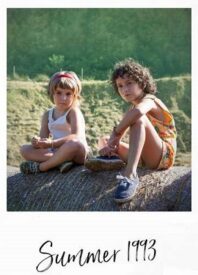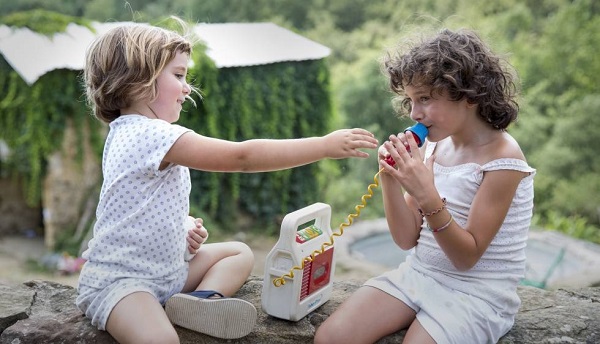
Frida (Laia Artigas) is going through her ‘me’ phase, and yes, this sentence makes me sound like I’m beefing with a child. The Catalan girl leaves Barcelona to her uncle Esteve (David Verdaguer) aunt’s Marga’s (Bruna Cusí) country home and she’s showing her cousin Anna (Paula Robles) all of her dolls. Perhaps showing off is her way of coping with her new life, where Marga teaches her things about farm life. She must also care for her Anna, a girl much more prone to injury now that Frida is around. That’s one of the things that make Esteve and Marga resent her.
Frida picks up on this resentment, one that’s devastating to a child. Another thing that separates Frida from other children is the constant doctors’ appoinments she has to make as a child with exposure to AIDS, the disease that killer her mother. Carla Simón‘s Summer 1993 shows a lot of things that can either help a child grow or harm them. Repeat viewings enhance those possibilities of either growth or harm, but Simón presents those latter things with a subtle hand. What helps that subtle hand is the ways she frames both children absorbing their environment.
Summer 1993 precedes Simón‘s other full length feature, Alcarras, another film about another Catalan family. Both are great, but I like Summer by a hair and it helps that there are really only four characters to follow. Well, two, since this is mostly just watching Frida and Anna jumping around the different places around their home. We watch these two children pick up cues from each other, reminding me of how children can sense things. What they do with what they sense is another matter.
Simón, in directing what seems like an authobiographical film, gives her adult characters with similar flaws but also, similar maturity. Esteve and Marga change their minds about Frida constantly, mostly for the better, forgiving her for the mistakes that they perceive she makes without making a big deal or a teachable moment out of those mistakes. In a way, the film makes its viewers feel these positive changes through its characters. Sometimes Marga is offscreen saying something nice to Frida that makes the latter smile, glowing like the countryside that Simón captures with love.
It bears repeating that Summer 1993 because of how compelling Frida is as a protagonist. The film gives nuance to the ups and downs of family life. But it importantly captures this thing when children hold on to the negative interactions around them more than positive ones. This film makes its viewers hope that shre and this family pull togther. And it does this without the big blowouts that often happen in real life families or friendships. Simón, in all of this, captures that light that feels more precious because of the darkness that precedes it.
Watch Summer 1993 on OVID.
- Rated: NR
- Genre: Drama, Family
- Directed by: Carla Simón
- Starring: Bruna Cusí, David Verdaguer, Laia Artigas, Paula Robles
- Produced by: María Zamora, Stefan Schmitz
- Written by: Carla Simón
- Studio: Avalon, Inicia Films


